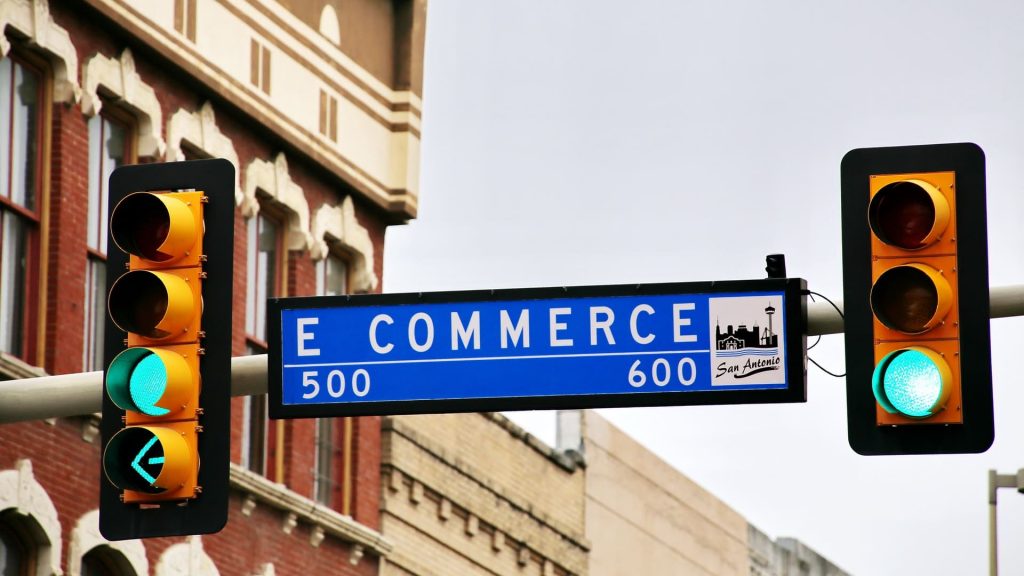When it comes to eCommerce and online retail, there are pros and cons to both types of shopping. In this article, we’ll take a look at the key differences between e-commerce and brick and mortar stores, and help you decide which is the best option for your business.
1. What are Brick and Mortar
Brick and mortar stores are physical retail locations where customers can browse and purchase items. The coffee shop you get your coffee in the mornings, the bakery you bought your donuts with your coffee, and the boutique in the shopping mall you buy clothes for your children are brick-and-mortar businesses.
2. The Pros and Cons of Brick and Mortar
There are pros and cons to both eCommerce and traditional commerce stores. Here are the key points to consider:
Physical stores have been around for centuries, so they have a lot of experience under their belts. They know how to run a business efficiently and can offer customers a wider variety of products than online stores can. In addition, traditional stores often have more personal touches that make them more engaging.
On the other hand, online stores can be more convenient for shoppers. They can shop from the comfort of their own home, and they can avoid long lines and crowds. Online stores also tend to have lower prices than physical stores, which is an advantage for consumers who want to save money.
Ultimately, it depends on each individual’s preferences as to which type of store is best for them. There are pros and cons to both types of stores, so it is important for shoppers to weigh the benefits and drawbacks before making a decision.

3. What is Ecommerce
E-handel is the buying and selling of products and services over the internet. This differs from traditional retail where customers come into a store to buy items.
With eCommerce, customers can purchase items online and have them delivered to their door. This is a huge advantage for retailers because it allows them to reach a wider audience than they would be able to if they only sold through brick-and-mortar stores.
Additionally, eCommerce platforms make it easy for retailers to keep track of sales and inventory.

4. The Pros and Cons of Ecommerce
When it comes to shopping, most people lean towards the convenience of online shopping. With so many options available and the ability to track your order virtually 24/7, it’s no wonder that ecommerce is on the rise. But is online shopping always the best choice? Here are some pros and cons of ecommerce:
PROS of Ecommerce Shopping
-Convenience: Online shopping is quick and easy, with no need to leave your home or wait in line. You can also shop while you’re on the go, which is great for people who have busy lives.
-Variety: With so many different retailers available online, you’ll be sure to find what you’re looking for. No more waiting in long lines at a physical store only to be disappointed when your favorite item isn’t in stock.
-Price Comparison: It can be difficult to find the best deal when shopping in person, but online shops make it easy to compare prices between different retailers. This is especially helpful if you’re looking for an item that’s high in demand but hard to find in stores.
CONS of Ecommerce Shopping
-Number of choices: There are millions of ecommerce stores and it can be hard to find the one that is best for you. The number of shops creates confusion for the buyers.

5. eCommerce vs Brick and Mortar: Which is Better for You?
Ecommerce is growing more popular by the day, and for good reason. It offers shoppers an easier way to purchase items than going to a traditional store.
Brick and mortar stores have been around for centuries. First of all, physical stores are more personal. You can actually touch and feel the products before you buy them, which is amazing for quality control. Not to mention, you can visit several stores to compare prices and find the best deal.
Another big advantage to traditional stores is their customer service. If something goes wrong with your purchase, chances are good that you can find help at a physical store. In contrast, ecommerce companies often don’t have dedicated customer service departments, so it can be difficult to get help when you need it.
On the other hand, you can start an ecommerce store easily. Also, it is easy to grow your online store. When you have an ecommerce store, you can run your store wherever you are in the world. You do not need to be in somewhere physically.
The hardest part of the traditional stores is that these shops need you there! You need to be in the store regularly.
So which is better? The traditional store is here for years but the eCommerce is the future!
Conclusion
There is no single answer to this question, as it depends on your particular business and what works best for you. However, ecommerce can be a great way to get started if you want to avoid the hassles of having to physically sell your products in person.
On the other hand, physical stores offer a more personal experience that may be better suited for some businesses. Ultimately, it’s important to figure out what works best for your company before jumping into any big decisions.
You can start a free ecommerce store now and see how it is going before your final decision!





